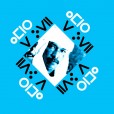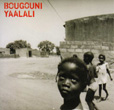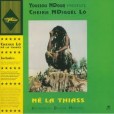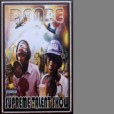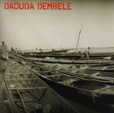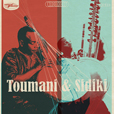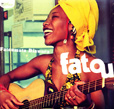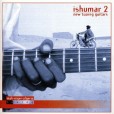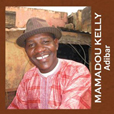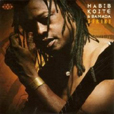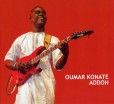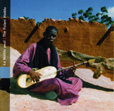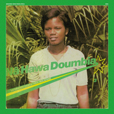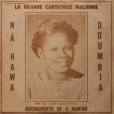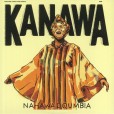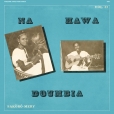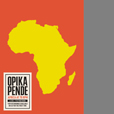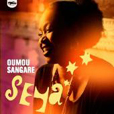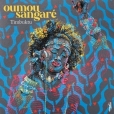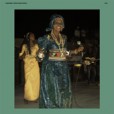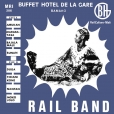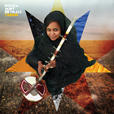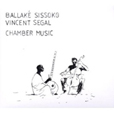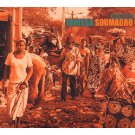Your basket is empty

A tape collage from the south of Mali, and the capital Bamako, in Sublime Frequencies fashion.
‘High energy beats from the kings of Bamako’s sound-system street-party scene, as featured on the Balani Show compilation. Cut-up samples of baliphones, djembes and talking drums, spliced together into heavy studio tracks. Future bass sounds — a Malian mix of kuduro, decale, dancehall, and trap.’
Scarce.
Beautiful, hypnotic, long-drawn-out praise singing in the ancient Malian jeli tradition, with ngoni accompaniment.
Shot between 2007 and 2012, Hisham Mayet’s film is an exhilarating, hallucinatory, harrowing record of music, ritual, life, and landscape along the Niger River, as it winds through Mali and the Republic of Niger.
Deep, rough, hypnotic recordings of the Fulani lute (and singing), made by this inspirational French label around Douentza and Bamako, Mali, between 2002-2004.
Beautifully direct Wassoulou songs by the twenty-year-old accompanied only by N’Gou Bagayoko on acoustic guitar.
Starkly intimate, utterly captivating early recordings by this wonderful Malian singer. Voice and acoustic guitar only; as if you were the only person in the room.
The sound has been brilliantly restored by Awesome Tapes, for its fiftieth release.
Achingly beautiful music; hotly recommended.
‘A stunning collection of songs, fusing her distinctive Malian sound and voice with elements of blues, folk and rock – resulting in a timeless body of work, free from borders and genres.
‘Written and recorded in the US during coronavirus lockdowns, the album is the latest chapter in an unparalleled musical epic which has seen an artist born in the poorest districts of Bamako, Mali, become the greatest and most influential African singer alive, as well as a powerful feminist icon.
‘Between the hometown pride exhibited in Wassulu Don, the quiet introspection of Degui N’Kelena, the amorous languor expressed on Kanou, the compassion in Demissimw and the sadness and frustration in Kêlê Magni, many emotions nourish this record, with common threads of courage and optimism woven throughout.’
Lovely, hypnotic, rocking peulh music from Dilly commune, Mali, near the border with Mauritania (and the same family grouping as the celebrated singer Inna Baba Coulibaly). Duelling ngonis, calabash, flute, dashes of electric guitar; newly recorded.
‘One of the greatest, heaviest, and most sought-after guitar records from 1970s West Africa.’
‘Bamako, Mali, 1973: Rail Band, the official orchestra of the Malian state railway, drops their self-titled LP. It’s a relentlessly soulful and hypnotic blend of American funk, jazz horns, and Afro-Cuban music, steeped in centuries-old Mandé tradition.
Led by legendary trumpet and saxman Tidiani Koné and held aloft by the intricate web of Djelimady Tounkara’s reverb-soaked guitar, the Rail Band’s sprawling compositions embody West African storytelling traditions while exulting in the technology and modernity of a newly independent Mali. Vocalists Salif Keita and Mory Kanté are endlessly emotive, oscillating between silky ballads and funk screams. The band’s sound is filled out by layers of percussion, rolling guitars, and melodic horns filtered through the Caribbean.
‘Starting in 1970, the Rail Band played five nights a week, from 2 pm til the early hours, at the Buffet Hotel de la Gare. Their audience was an international array of businessmen, young partiers, and people of the Bamako night. The band was incredibly versatile, switching genres, rhythms, and styles to meet their crowd. It was a volatile mix, which would fall apart soon after these recordings were made. Here it is, one of the greatest bands to ever exist, at the height of its creative powers.’
Kora and cello interplay.
Fine Malian blues, with contributions from Ali Farka Toure.

